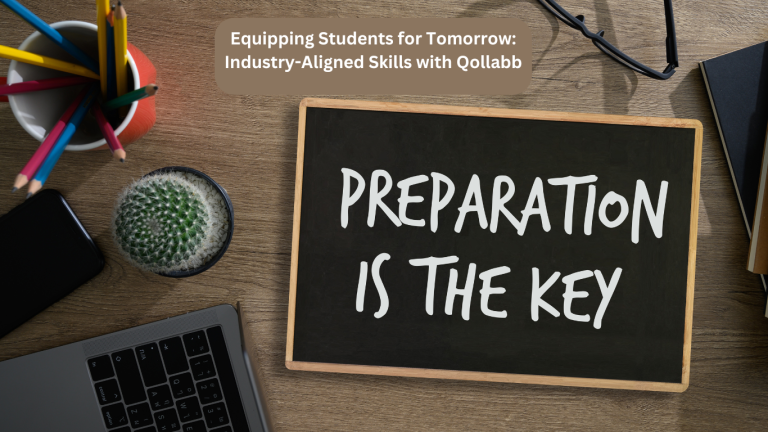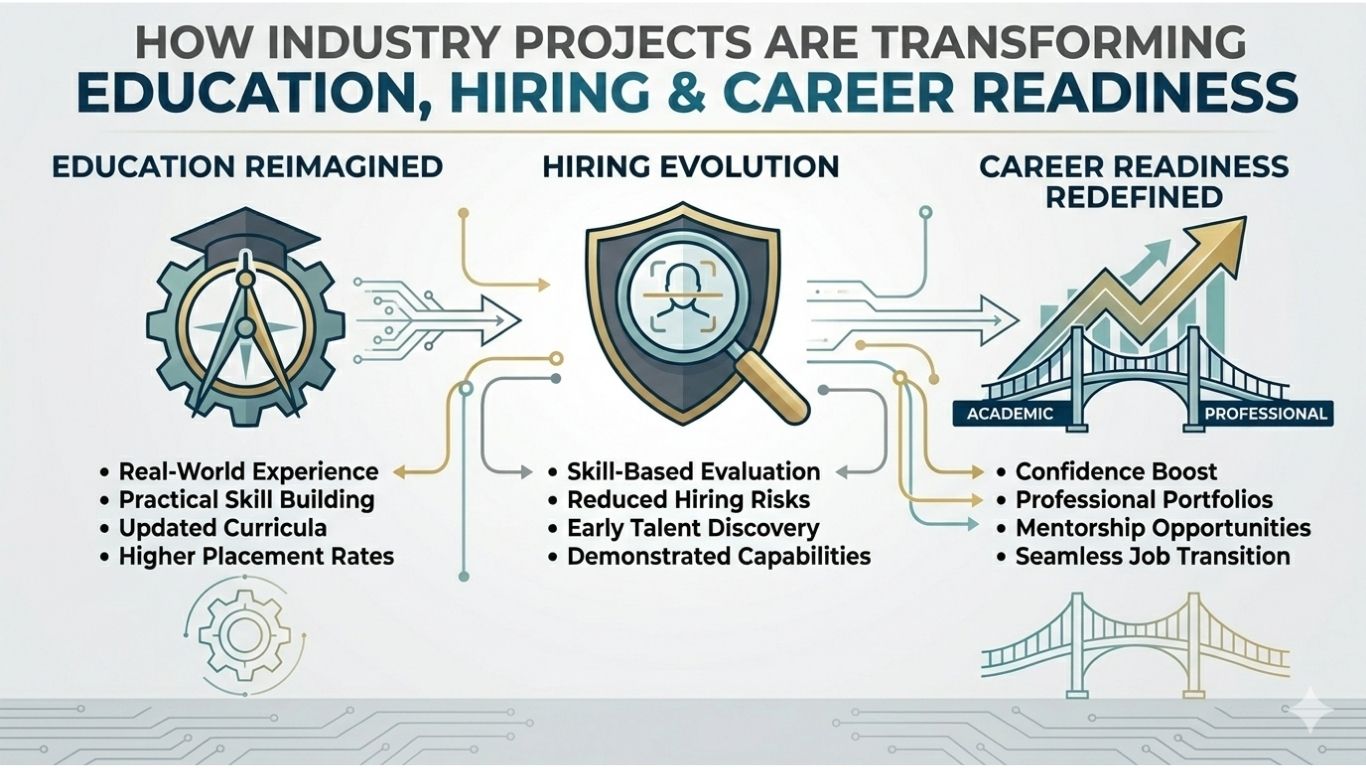In today’s competitive job market, industry-aligned skills are essential for preparing students for the future. Employers increasingly prioritize practical expertise over theoretical knowledge, yet many graduates face challenges due to outdated curricula and limited real-world exposure. The need for a platform that bridges this gap has never been more critical. Enter Qollabb—a solution designed to equip students with industry-aligned skills while fostering collaboration between universities and companies. By enabling practical learning and providing actionable industry insights, Qollabb is reshaping how students transition into the workforce.
The Need for Industry-Aligned Skills
Why Industry-Relevant Skills Matter
Employers demand graduates who can contribute from day one. According to the India Skills Report, 48% of Indian employers believe fresh graduates lack necessary job skills. Industry-aligned skills provide students with practical knowledge, enabling them to meet workplace expectations effectively.
Current Skill Gap in Academia
Many universities still follow outdated curricula that do not address evolving industry requirements. Limited opportunities for hands-on learning widen the gap between academia and employability.
The Impact on Employability
Graduates with practical experience and exposure to real-world challenges are 50% more likely to secure jobs than their peers (NASSCOM). This underscores the need for universities to align their programs with industry expectations.
Qollabb’s Role in Bridging the Skill Gap
Collaboration with Universities
Qollabb helps universities stay ahead of industry trends by integrating real-time insights into their curricula. For instance, emerging fields like AI, blockchain, and sustainability are seamlessly included through tailored modules.
Partnerships with Companies
By partnering with leading companies, Qollabb ensures that students engage in projects reflecting real-world challenges. Employers collaborate to co-create content, bridging theoretical concepts with practical applications.
Practical Learning Through Projects
Through Qollabb, students gain hands-on experience by participating in live projects. From app development to branding campaigns, these projects simulate real-world work environments, giving students an edge in the job market.
Key Features of Qollabb for Universities
- Real-Time Industry Insights
Universities access up-to-date trends, enabling them to design courses that reflect current demands. - Customized Training Programs
Qollabb supports universities in developing specialized training programs, such as certifications in AI or digital marketing. - Internship and Placement Opportunities
With direct connections to companies, students secure internships and entry-level roles. - Mentorship Opportunities
Students benefit from guidance by industry leaders, enhancing their career readiness. - Skill Assessments and Certification
Qollabb’s assessments ensure students meet industry standards, boosting their employability.
Benefits of Industry-Aligned Skills for Students
Enhanced Employability
Graduates with job-relevant skills find themselves well-prepared for competitive roles across industries.
Broader Career Opportunities
Industry-aligned training exposes students to diverse sectors, from IT and healthcare to media and fintech.
Increased Confidence and Adaptability
Practical exposure to real-world challenges equips students to thrive in dynamic work environments.
Future-Ready Workforce
Skills in emerging technologies ensure students are ready for roles in evolving fields like AI and IoT.
The Role of Universities in Industry Alignment
Curriculum Modernization
Universities must adopt flexible and modular curricula that integrate industry trends and prepare students for tomorrow’s challenges.
Collaborative Approach
Working closely with platforms like Qollabb, universities can develop initiatives that improve learning outcomes and enhance student success.
Student Success Metrics
Universities can measure their effectiveness through placement rates, skill certifications, and the completion of real-world projects.
Future Trends in Industry-Aligned Education
- Rise of Hybrid Learning
Combining traditional education with online and experiential learning methods is becoming the norm. - Focus on Soft Skills
Communication, teamwork, and problem-solving are gaining importance alongside technical expertise. - Integration of Emerging Technologies
Universities are increasingly including topics like AI, IoT, and data analytics in their programs. - Continuous Skill Development
Lifelong learning is essential to keeping up with the rapidly changing job market.
How Qollabb Empowers Universities and Students
For Universities
- Design programs that reflect industry demands.
- Improve placement rates and strengthen employer relationships.
- Build their reputation as leaders in preparing job-ready graduates.
For Students
- Gain hands-on experience through live projects.
- Build a professional portfolio showcasing practical skills.
- Access mentorship and networking opportunities.
Conclusion
In a rapidly changing job market, industry-aligned skills are no longer optional they are a necessity. By bridging the gap between academia and industry, Qollabb empowers universities to develop programs that prepare students for the future. For students, the platform offers unparalleled opportunities to gain practical experience, build connections, and secure their dream roles.
The future of education lies in collaboration, and Qollabb is leading the charge. Universities and companies must embrace this platform to equip the next generation with the tools they need to succeed.
Call to Action: Explore Qollabb today to create a future-ready workforce and transform the way students prepare for their careers!





